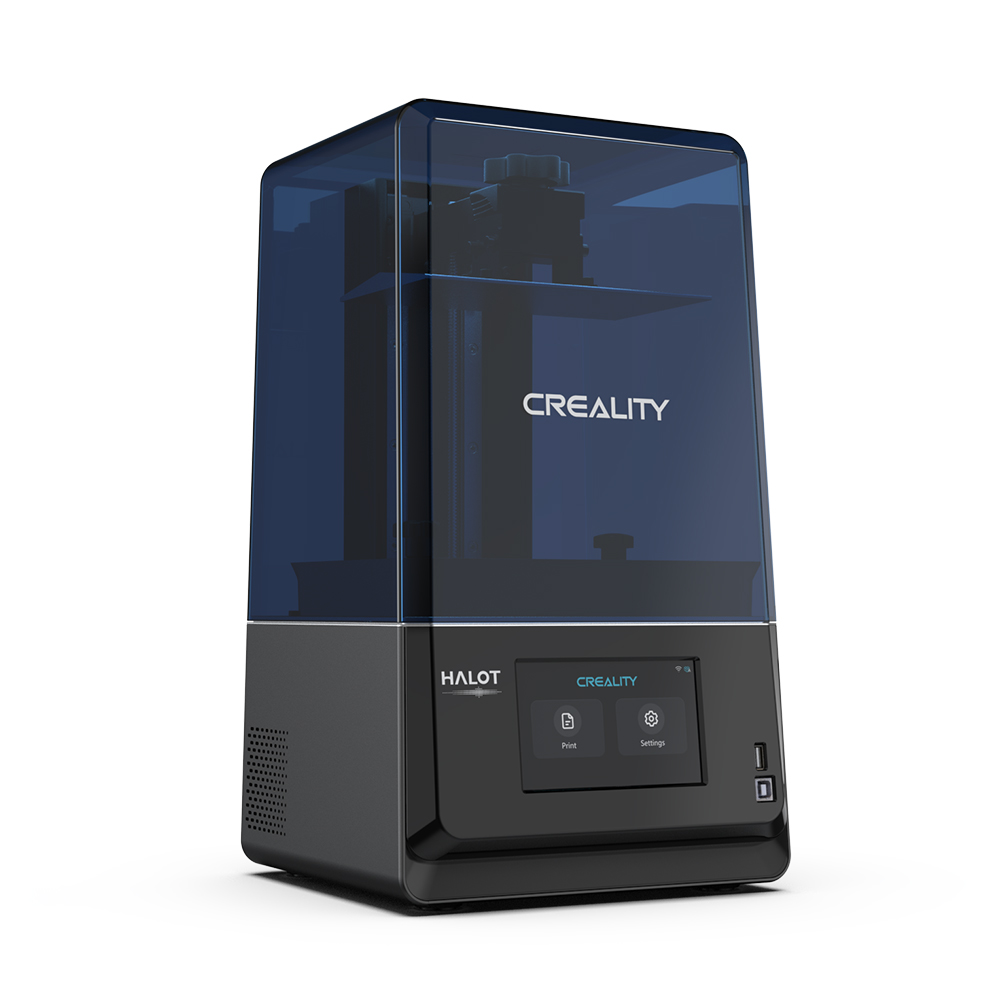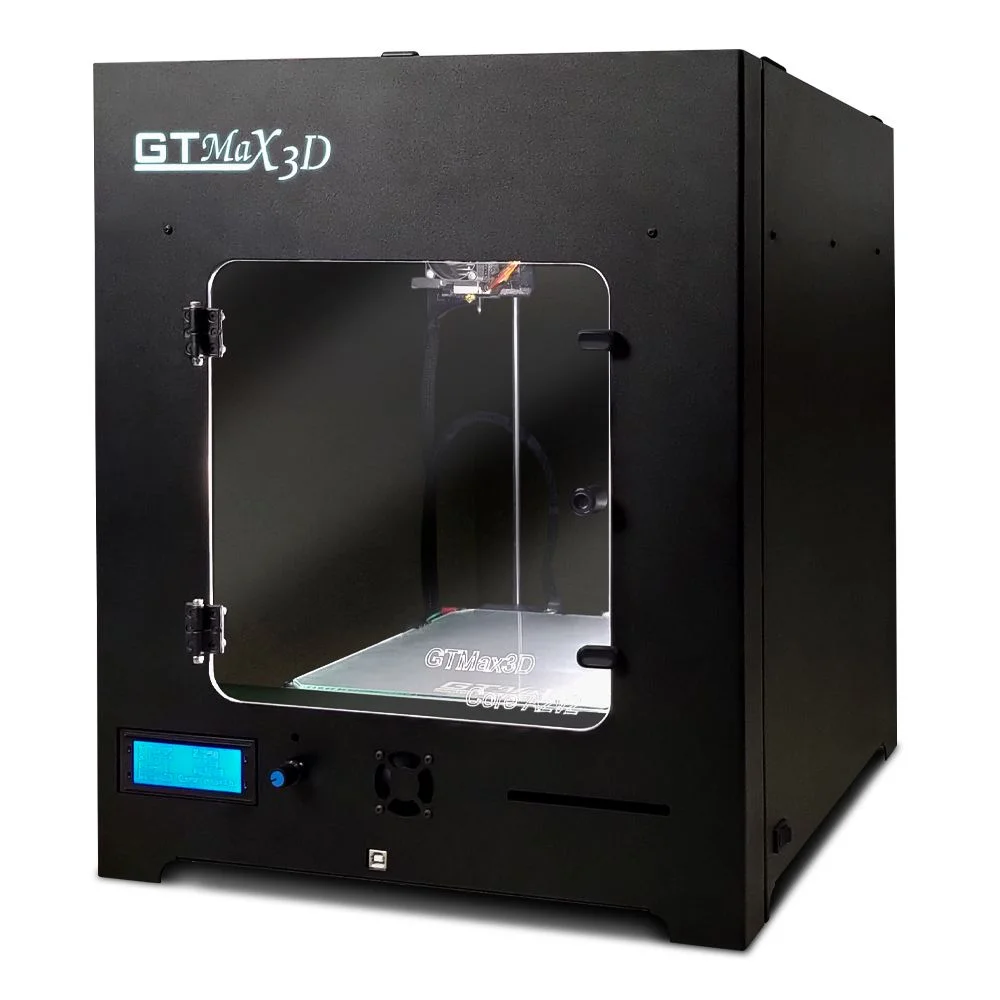Compare Halot One Plus vs Core A2V2
Comparison between the best 3D printers
Choose the best 3D printer at the best price. The cheapest 3D printers are here.
Buy a 3D printer here with 3D Fila.
 |
 |
|
| Model | Halot One Plus[BUY Halot One Plus] |
Core A2V2 |
| Printing Material | Resin | Filament |
| Buy Resin for Creality 3D Halot One Plus | Buy Filament forGTMax Core A2V2 | |
| Estimated price | $399,00 | $684,00 |
| Manufacturer | Creality 3D | GTMax |
| Release Year | 2022 | 2019 |
| Print Volume [mm] | 102x172x160 | 220x220x240 |
| Printer Size [mm] | 236x245x416 | 425x460x512 |
| Weight [kg] | 6,8 | |
| Power Loss Recovery | NO | YES |
| Maximum Resolution [mm] | 0,05 | |
| Processor | ||
| Display | Mono | |
| Power Supply | ||
| Connectivity | USB / Wi-Fi | SD / USB |
| Operating systems | Windows, Mac, Linux | |
| Date of registration in the system | 2022-10-11 | 2022-11-12 |
| Release date | 2022 | 2019 |
| Extra features | Crealitys Halot-One Plus printer stands out for its 4K+ resolution that delivers sharp details and consistent surfaces. It features a fast and responsive 5-inch LCD interface, as well as easy-to-use Halot Box software. It offers Wi-Fi connectivity and remote print monitoring, as well as an integrated air filtration unit, a rare feature in this price range. The Halot-One Plus is designed for the prosumer market, combining high quality with advanced features such as Wi-Fi and air filtration. During testing, it stood out for implementing these features at an affordable cost, while maintaining functionality. It features an attractive design with a UV-resistant blue cover and a robust dual rail system for the Z-axis, ensuring smooth and consistent movements. The large LCD and high resolution of the LCD mask (4320 x 2560) are other strong points, allowing for fine details and textures in prints. | The GTMax3D ProCore A2v2 is a compact and robust 3D printer with a printing area of ??220 x 220 x 240 mm. It offers high print quality, ranging from 0.05 mm to 0.32 mm. Its features include automatic filament detection and changing, travel speed of up to 300 mm/s, and a heated aluminum bed with a glass top. It has automatic bed leveling with 16 points and an all-metal hotend that reaches up to 298°C. The printer has a carbon steel frame with electrostatic painting, is automatic bivolt and has connectivity via USB and SD card. The Bowden system and core xy kinematics complete its advanced features. |
| Support for multiple colors and materials (AMS and CFS) | NO | NO |
Notes * |
||
| Cost-benefit | 8 / 10 | 6 / 10 |
| Hardware | 1.4 / 10 | 2.5 / 10 |
| Tela | . | . |
| Print volume | 3 / 10 | 3 / 10 |
| Performance | 9 / 10 | 1 / 10 |
| [BUY Halot One Plus] |
Conclusion |
| In comparing the Creality 3D Halot One Plus and the GTMax Core A2V2, several key factors emerge that can help prospective buyers make an informed decision. The Halot One Plus stands out due to its affordability, high resolution capabilities, and thoughtful design features such as integrated air filtration and Wi-Fi connectivity. Its 4K+ resolution allows for fine details in prints, making it particularly appealing for users seeking high-quality output without a significant investment. Despite its smaller print volume, it is tailored for advanced users looking for an efficient, user-friendly machine that excels in performance. On the other hand, the Core A2V2 offers a larger print volume and robust build quality, appealing to those who might prioritize size and stability over absolute detail. The inclusion of features like automatic bed leveling and a high-temperature hotend makes this model suitable for a wider range of materials and potential applications. However, its higher price point and lower overall performance metrics compared to the Halot One Plus may deter budget-conscious buyers. Overall, for those prioritizing cost-effectiveness and print quality, the Creality 3D Halot One Plus emerges as the superior choice. In contrast, the GTMax Core A2V2 may cater better to individuals needing larger print capabilities, but that comes at a higher cost with more modest performance. Thus, buyers should assess their specific needs—whether it be high-resolution details or larger print volume—to determine which printer aligns best with their objectives. |

